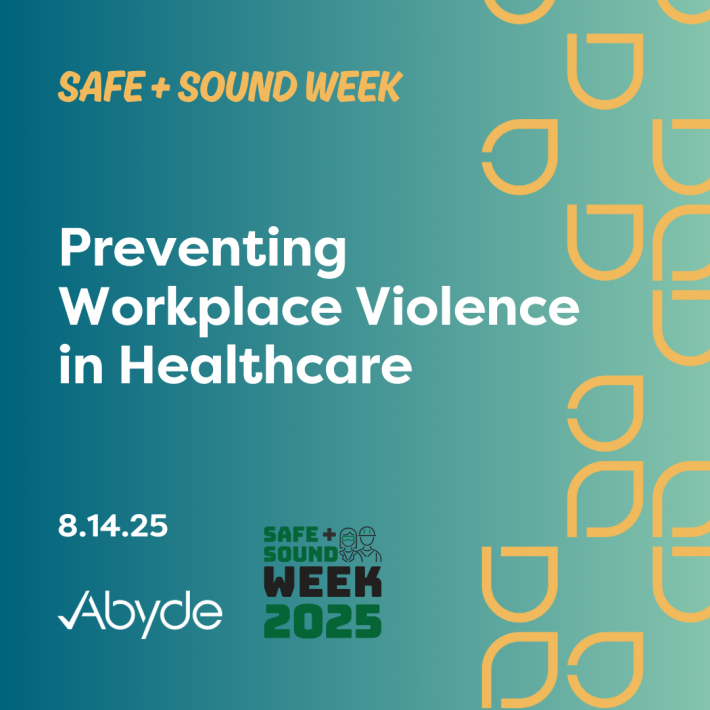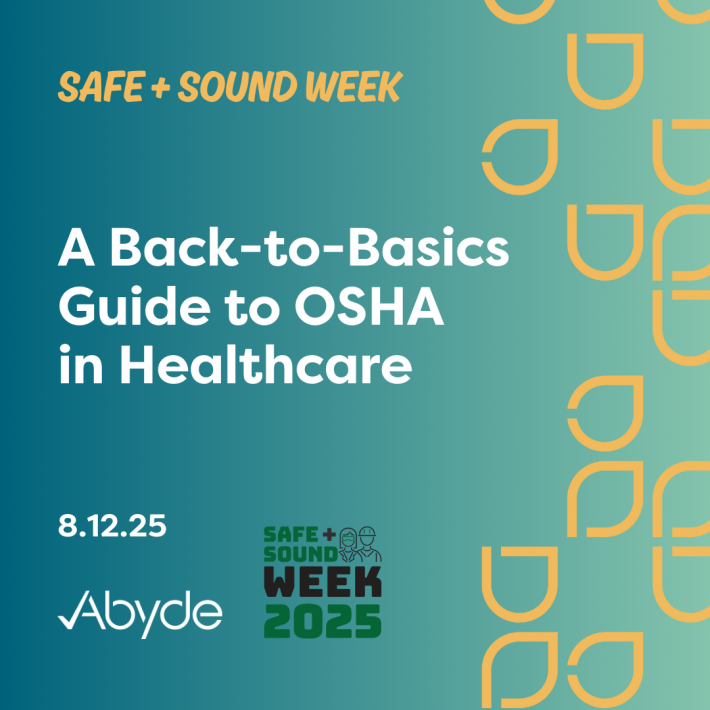October 11, 2022
“Why should I be concerned about OSHA? I’ve never heard anything about OSHA and vision clinics?”- an actual Abyde customer
Optometrists can feel the sting from OSHA, but it isn’t a sting like getting shampoo in your eye that goes away after washing it out. It’s a financial sting, much like cutting a jalapeno and wiping your eye, and requires a more serious treatment method.
OSHA is ramping up their staffing, and holding their regulations to the highest standards we’ve seen yet. Sure, when you put OSHA into your search bar you see hardhats and bright green vests, it doesn’t look like it applies to you. We are here to tell you no one is exempt from regulations unless specifically stated. We have done our research, we see the importance for our customers, and now it’s time to educate on why it applies to Optometry.
Optometrists and their staff always use best practices in wiping down the chin and head strap before sending that always anticipated, but yet startling ‘puff’ to the eyeball. When sitting in the big chair and ready to use the machine that has patients looking like Dr. Robotnik, they always clean it beforehand. But, what may not be recognized is that the cleaning solution used in best practice, is required to be logged and updated under OSHA Standards. Let’s not forget about the education Optometrists give patients on the benefits of getting eyes dilated. When patients consent to wearing the cool disposable sunglasses, the Doctor’s responsibility is to have OSHA approved regulations in place while using the chemical. This includes but is not limited to having it logged in the Safety Data Sheet (SDS), but also making sure all staff is trained on usage to avoid any injuries. Documenting your hazardous chemicals and training staff for implementation, is part of the real definition of best practice according to us here at Abyde, and we of course give you everything you need to do so.
While patients may need eye drops for getting shampoo in the eye, they won’t be getting any eye diseases that an Optometrist needs to treat. However, while treating eye diseases, OSHA standards for Exposure Control are required to be followed. That includes any bacteria, bloodborne pathogens, and maintaining proper protection is key! Let’s not forget the hazardous chemicals you’re using for treatment. Now that we’ve gone full circle, we haven’t even started the race on OSHA importance in Optometry.
So, to answer the Abyde customer(s) who are wondering why they should be concerned about OSHA, we have much more education available for all of our Optometrists! Knowledge is power, (and in this case, a money saver), y’all.





